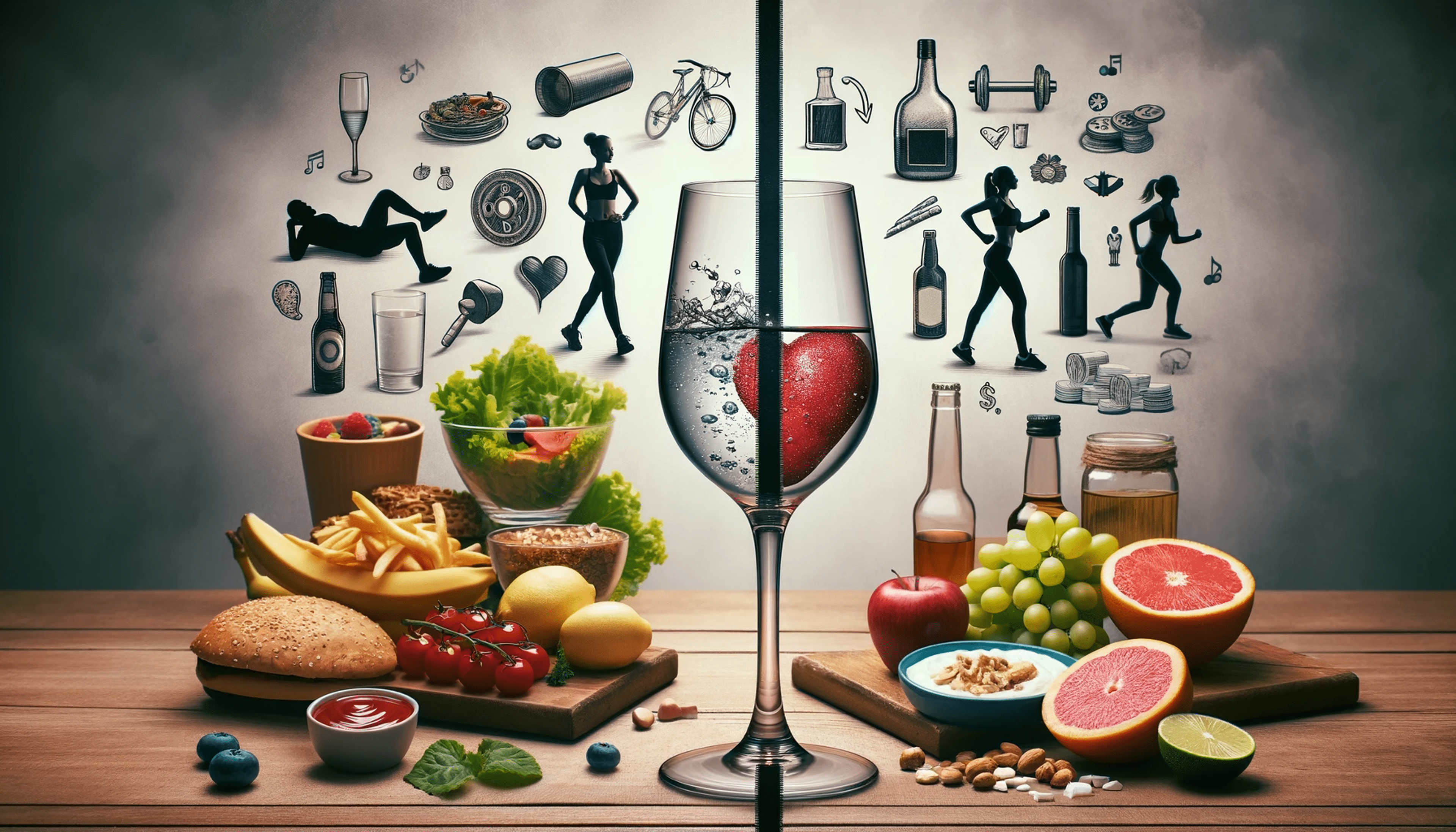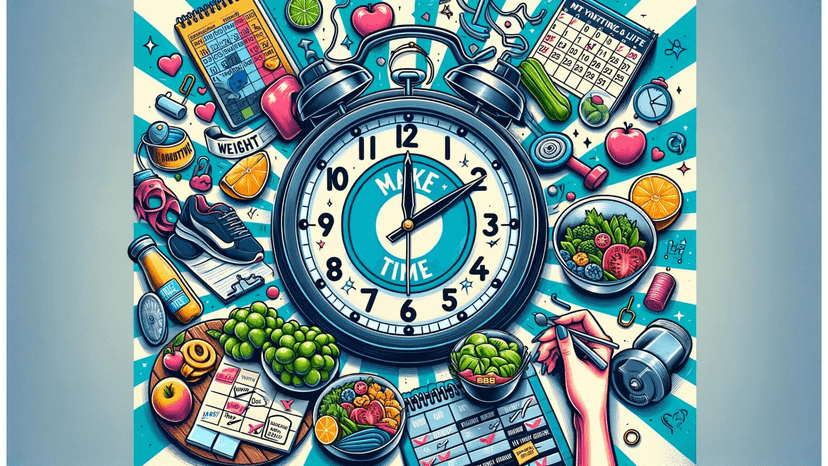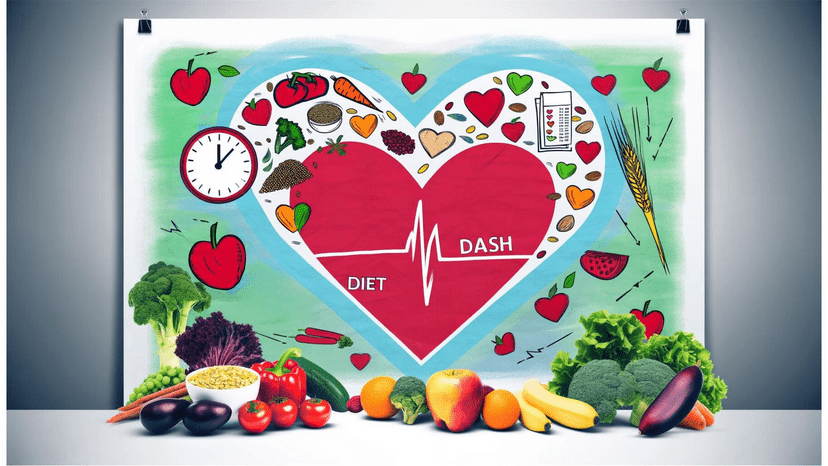Should I Give Up Alcohol If I Want to Lose Weight

Alcohol's Impact on Weight
Truly understanding how alcohol affects body weight requires breaking down its various impacts within the body. Beyond its caloric content, alcohol has significant effects on your metabolism and can greatly shift your appetite and food choices. These factors combined can pose a substantial challenge to weight loss efforts.
Calories and Nutritional Value of Alcohol
Alcohol, in itself, holds a considerable caloric punch. Typically, it's easy to chalk up the weight gain from alcohol to the sugary mixes or indulgent beer recipes. However, the real fact is alcohol contains around 7 calories per gram. While this may seem like a small amount, consider that fat contains just 2 calories more per gram. Coupled with the fact that most alcoholic beverages also contain sugars and other additives, the calorical content of a seemingly innocent glass of wine or pint of beer can quickly add up.
Additionally, alcohol provides what many nutritionists term 'empty calories'. This means that while these calories contribute to your total intake, they offer little to no nutritional value. When trying to lose weight, it's essential to maximize your nutrient intake from every calorie consumed. Alcohol, however, does not aid in this endeavor and instead fills your body with calories that have no nutritional benefits.
Alcohol's Effect on Metabolism and Appetite
Equally important to consider is alcohol's influence on metabolism. Metabolism is your body's process of converting the food you eat into energy. Regular alcohol consumption can interfere with this process in a couple of different ways.
Firstly, when alcohol is consumed, your body prioritises its metabolism over other metabolic processes. Essentially, your body will stop burning fat and carbohydrates to focus on metabolizing the alcohol. This means fewer overall calories are burned, leading to an accumulation of fat stores in the body.
Secondly, alcohol can inhibit the process of thermogenesis - the process through which your body burns calories to produce heat. This further reduces the number of calories your body is capable of burning.
Alcohol also has a substantial impact on appetite. Research suggests that alcohol increases feelings of hunger by affecting hormones that regulate a sense of satiety. This can lead to increased calorie intake from food, which can be detrimental to weight loss efforts.
The Psychological Impact of Alcohol on Diet Choices
Not only does alcohol alter the physiological functions and processes of the body, but it also has profound psychological effects that can impact dietary choices. Alcohol consumption is commonly associated with lowered inhibitions and impaired judgement, which can result in poorer dietary choices.
Often, when under the influence of alcohol, individuals may find themselves reaching for fatty, sugary, or high-calorie foods they would typically avoid. Over time, these choices can significantly hinder weight loss efforts and lead to weight gain. Additionally, the habitual aspect of drinking can create associations between the act of drinking and eating certain kinds of food, further reinforcing negative dietary behaviors.
In summary, while enjoying occasional alcoholic beverages may not significantly affect weight loss efforts, frequent alcohol consumption can. By understanding the caloric content of alcohol and its effects on metabolism, appetite, and psychological influences on diet, we can better navigate our relationships with alcohol in the context of our overall health, fitness, and weight loss journeys.
Alcohol Consumption and Weight Loss Goals
As health and fitness goals differ among individuals, it is important to explore whether moderate alcohol consumption aligns with those who are focusing on weight loss.
Often, many view alcohol as an unyielding enemy in the battle against the scale, assuming that we need to cut it out completely to lose weight. However, scientific evidence suggests a more nuanced view.
Can Moderate Drinking Fit into a Weight Loss Plan?
It is not absolutely essential to entirely eliminate alcohol while striving to lose weight. Moderation in alcohol consumption plays a key role in its effects on weight management. Research indicates that moderate drinkers are not at a higher risk of obesity compared to non-drinkers. This is not to suggest that alcohol should be a part of your weight loss plan, but it does point to the idea that light to moderate drinking may not necessarily derail your weight loss efforts.
However, heavily consuming alcohol or indulging in high-calorie alcoholic beverages can indeed contribute to weight gain. Alcohol has 7 calories per gram, almost twice the number found in proteins or carbohydrates. This means that alcohol itself is quite calorie-dense, and this is before considering the often sugary mixers that come with it.
Strategies for Balancing Alcohol Intake and Weight Loss
For those who enjoy a drink and also hope to lose weight, consider the following strategies:
- Choosing lower-calorie alcoholic beverages such as dry wines or spirits mixed with non-calorie mixers can significantly reduce the calorie intake from alcohol.
- Practicing controlled drinking like having a glass of water between drinks, sipping the drinks slowly, or predetermining the number of drinks to have can keep your intake in check.
- Bear in mind the timing of alcohol consumption, as drinking alcohol before a meal can stimulate appetite and lead to overeating.
The Role of Alcohol in Social Settings and Psychological Well-being
In considering any lifestyle change, it's crucial to view it from a holistic perspective. Alcohol often plays a role in social interactions and can contribute to psychological well-being for some people. A total ban might lead to feelings of deprivation which could potentially sabotage your weight loss efforts.
Remember, the emphasis here is on a balanced and sustainable lifestyle change. That means allowing yourself to enjoy the things you love, like a glass of wine with dinner, while keeping your overall health and fitness goals in mind.
The message here is not to promote drinking. Rather, it's to understand that a balanced, moderate approach towards alcohol might be more sustainable for weight loss than strict prohibition. At the end of the day, it is your individual choice that matters. By understanding the role of alcohol in your diet and its impact on your weight, you can make more informed decisions about its consumption.
Alternatives and Strategies for Reducing Alcohol Intake
Reducing or giving up alcohol can play a pivotal role in an individual's weight loss journey. However, it can often lead to challenges restricting one from completely enjoying their social life or maintaining a balanced lifestyle. In light of such possible obstacles, this section endeavors to offer practical advice and alternatives to drinking alcohol and ways to minimize its impact on your diet and health.
Healthy Alternatives to Alcoholic Beverages
While liquors may hold a charm for many, there is no dearth of healthier, more nourishing alternatives to alcoholic beverages. Making this switch may be demanding initially but can have noticeable effects on your weight management journey and overall health.
Water, for instance, may seem an underwhelming substitute initially, but its natural, calorie-free constitution makes it an excellent choice. For those looking for flavoured options, lemon water, herbal teas, and sparkling water with a splash of fresh fruit juice can be quite refreshing.
Non-alcoholic mocktails, fashioned after their spirited counterparts, can be a delightful no-alcohol alternative and easy to incorporate into social settings. Many non-alcoholic beers and wines are also available on the market which can satisfy your taste buds yet contain fewer calories and hinder your weight loss journey minimally.
Tips for Reducing Alcohol Consumption
Reducing alcohol consumption can be a breeze if approached strategically. Creating portion awareness is a prime step as people often lose track of how much they're consuming. Using smaller glasses and limiting refills can help.
Practicing mindful drinking is another effective technique. This means really savouring your drink, taking small sips, putting the glass down between sips, and really immersing yourself in the experience.
Planning alcohol-free days in the week is another great strategy. It sets a defined goal, gives the body time to recover, and contributes to weight management. Lastly, seeking support from family, friends, or a professional can make your alcohol reduction journey easier.
Maintaining Social Life While Reducing Alcohol Intake
Navigating social settings while trying to cut back on alcohol can be tricky but not impossible. You can suggest alternate activities that don’t revolve around drinking, such as a walk in the park, a fitness class, or a movie night.
Having a plan in place before attending gatherings where alcohol is present can address pressure to drink. This could be ordering a non-alcoholic drink or simply practicing polite ways to decline a beverage.
Remember, the journey of reducing alcohol intake should not mean compromising on your social life but should align with your healthier lifestyle and weight loss goals.
In Summary
In essence, this comprehensive guide brings attention to the relationship between alcohol consumption and weight loss, demystifying how alcohol affects our body and our journey towards achieving fitness goals.
A key element of this discussion is understanding the caloric content of alcohol and its effects on our metabolism and appetite. Since alcohol contains 7 calories per gram and provides 'empty calories', it can potentially increase our total caloric intake without providing any nutritional benefits. Moreover, the metabolic effects of alcohol can hinder the usual fat and carbohydrate burning process and can potentially increase feelings of hunger, leading us to consume more calories from food.
From a psychological aspect, alcohol can lower inhibitions and lead to poor dietary choices as well as reinforce negative dietary behaviors. However, it's essential to remember that moderate alcohol consumption doesn't necessarily impede weight loss efforts, and excluding alcohol from your diet may not always be the best approach. Instead, practicing moderation and maintaining a balanced lifestyle are key.
If weight loss is indeed a priority and you choose to reduce alcohol consumption, there are several healthier alternatives to alcoholic beverages such as water, lemon water, herbal teas, sparkling water with fresh fruit juice, or non-alcoholic mocktails, wines, and beers. Further, adopting strategies like creating portion awareness, practicing mindful drinking, planning alcohol-free days in the week, and seeking support from family, friends, or a professional can aid in the journey of reducing alcohol intake.
Regarding action steps to implement these findings, here's a simple plan:
- Understand the effects of alcohol: Acknowledge the caloric content of alcohol and its impact on your metabolism and dietary habits.
- Evaluate your consumption patterns: Assess your personal alcohol consumption habits, frequency, and the contribution of alcohol to your overall caloric intake.
- Make informed decisions: Decide whether to continue consuming alcohol, reduce the quantity, or eliminate it from your diet completely, based on your health, fitness goals, and lifestyle considerations.
- Implement changes gradually: If you choose to reduce or quit, incorporate healthier alternatives into your routine gradually, and engage in mindful drinking practices.
- Seek support: This journey need not be walked alone. Seek support from family, friends, or health professionals along the way.
- Review and adjust: Keep reviewing your progress and make necessary adjustments to your plans to ensure a sustainable lifestyle change.
Remember, there's no one-size-fits-all approach. Your journey to health, fitness, and weight loss is as unique as you are. The focus should be on effective and gradual changes that prioritize overall wellness and a balanced lifestyle.




